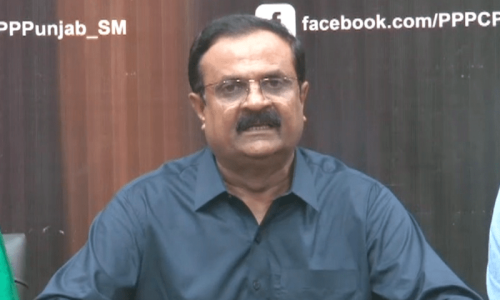LAHORE: The Punjab government has plans to present Rs201 billion surplus budget for the financial year 2020-21, projecting an income of Rs2.38 trillion and expenditure of Rs2.179tr. The estimated budget proposals feature Rs322.8 billion Annual Development Programme (ADP).
Despite the fact that the coronavirus pandemic has emerged as one of the biggest healthcare and economic crises around the globe and squeezed Pakistan’s economy as well, the Punjab government still expects Rs2.38tr receipts against Rs2.3tr receipts estimated for the current 2019-20 fiscal.
The budget proposals allow the Punjab government to spend Rs1,856.2bn during the next fiscal some Rs138.6bn (eight per cent) more than the current year’s proposed expenditure of Rs1,717.6bn. The government has estimated Rs1,427.6bn for current expenditure, Rs94.6bn for current capital expenditure and Rs334bn under the head of Expenditure A/c-II Food.
Rs27bn decrease in ADP likely; tax targets revised downward; agriculture taxable income is over Rs0.6m instead of Rs0.4m
The Punjab government is planning to come up with Rs322.8bn ADP against current year’s Rs350bn besides expecting Rs201bn surplus budget.
Sources told Dawn that the provincial government is formulating the 2020-21 budget in a reality that could not be supportive of any significant supplementary grants.
The government expects general revenue receipts to the tune of Rs1.784tr, including Rs1.466tr from divisible pool and Rs318.3bn from the provincial receipts. The provincial receipts comprise Rs230.3bn from tax receipts and Rs88bn from non-tax receipts.
The government has also estimated Rs42.7bn from current capital receipts, 89.3bn from foreign project assistance, Rs30bn from Public Sector Development Programme (PSDP) and Rs334bn from Receipt A/C-II (Food).
In case of provincial receipts of Rs230.3bn, which is Rs64.7bn (21.9pc) less than the target estimated from the current financial year’s Rs295bn, the government expects the Punjab Revenue Authority will collect Rs125.4bn during the next financial year – some 24.7pc less than the current target.
The Board of Revenue is expected to collect Rs65bn – 20pc less than the current year target while the excise and taxation is being assigned the target to collect Rs32bn (19.4pc less) against current year’s 39.7bn tax collection.
The energy sector is expected to generate Rs7.2bn (5.9pc more) than current year target of Rs6.8bn. The Punjab government is also asking the energy department to rationalise the energy bill of the province.
In order to give incentives to the agriculture income, the government is proposing to increase the slab from Rs400,000 to Rs600,000 to offer zero per cent tax regime; for Rs600,000 to Rs1.2m agriculture income slab, tax will be levied at the rate of 5pc on income exceeding Rs600,000.
For Rs1.2m to Rs1.8m, income tax will be levied at the rate of Rs30,000 plus 10pc of the amount exceeding Rs1.2m.
For Rs1.8m to Rs2.5m, income tax will be levied at the rate of Rs90,000 plus 12.5pc of the amount exceeding Rs1.8m.
For Rs2.5m to Rs3.5m, income tax will be levied at the rate of Rs177,500 plus 15pc of the amount exceeding Rs2.5m.
For Rs3.5m to Rs5m, income tax will be levied at the rate of Rs327,500 plus 17.5 per cent of the amount exceeding Rs3.5 million.
For Rs5m to Rs7m, income tax will be levied at the rate of Rs590,000 plus 20pc of the amount exceeding Rs5m.
Meanwhile, Chief Minister Usman Buzdar on Wednesday chaired a meeting of the resource mobilisation committee at his office to review different proposals for enhancing the provincial resources. He constituted a committee under senior minister Abdul Aleem Khan to submit a comprehensive plan for enhancing the provincial resources.
Stating that the Punjab government is going through unusual circumstances due to coronavirus pandemic, the chief minister maintained that the government would not burden the poor segments of the society as protection of the interests of the underprivileged was the pivot of the PTI’s policies.
Mr Buzdar asked the line departments to devise a comprehensive strategy for achieving their targets and every effort should be made to provide relief to the masses. “Punjab is full of resources and there is a need to strengthen the economy by utilising them,” he said and added the revival of economic activities would help generate new employment opportunities.
Published in Dawn, June 11th, 2020













































